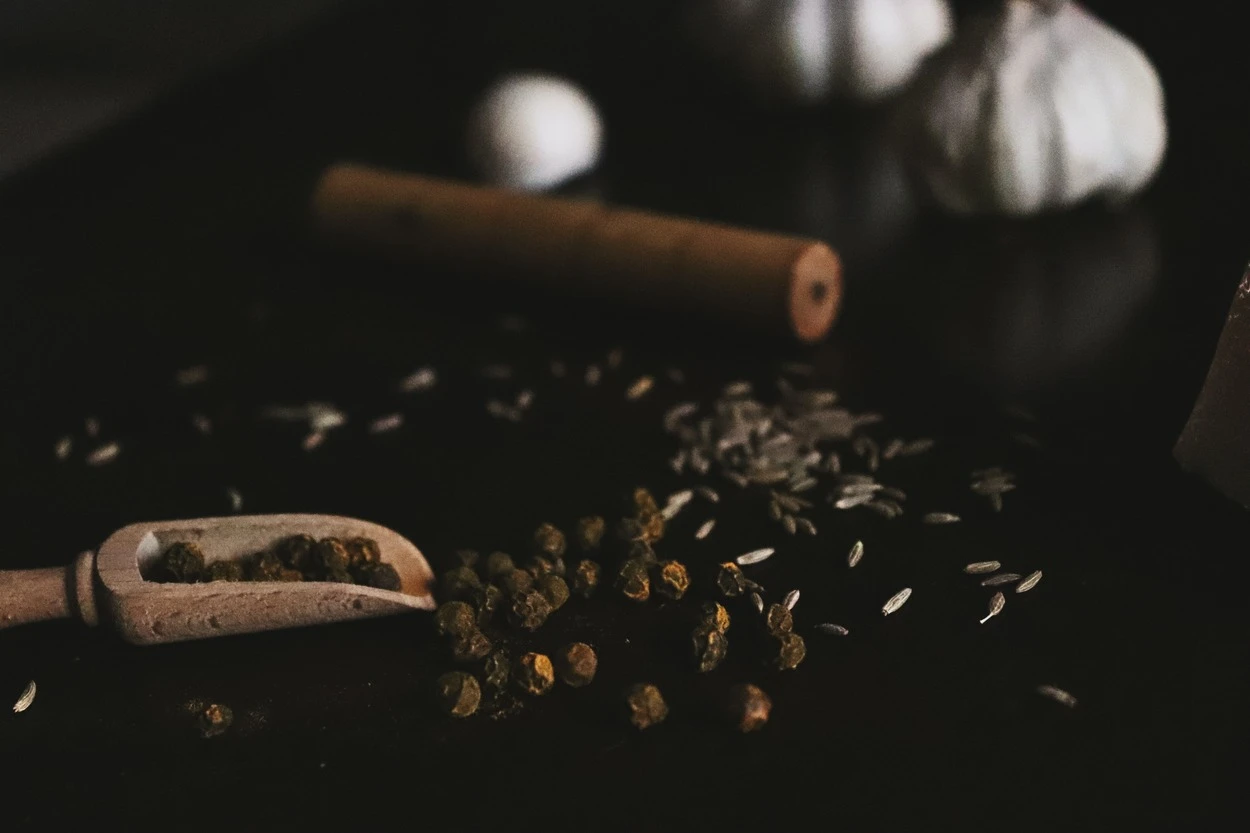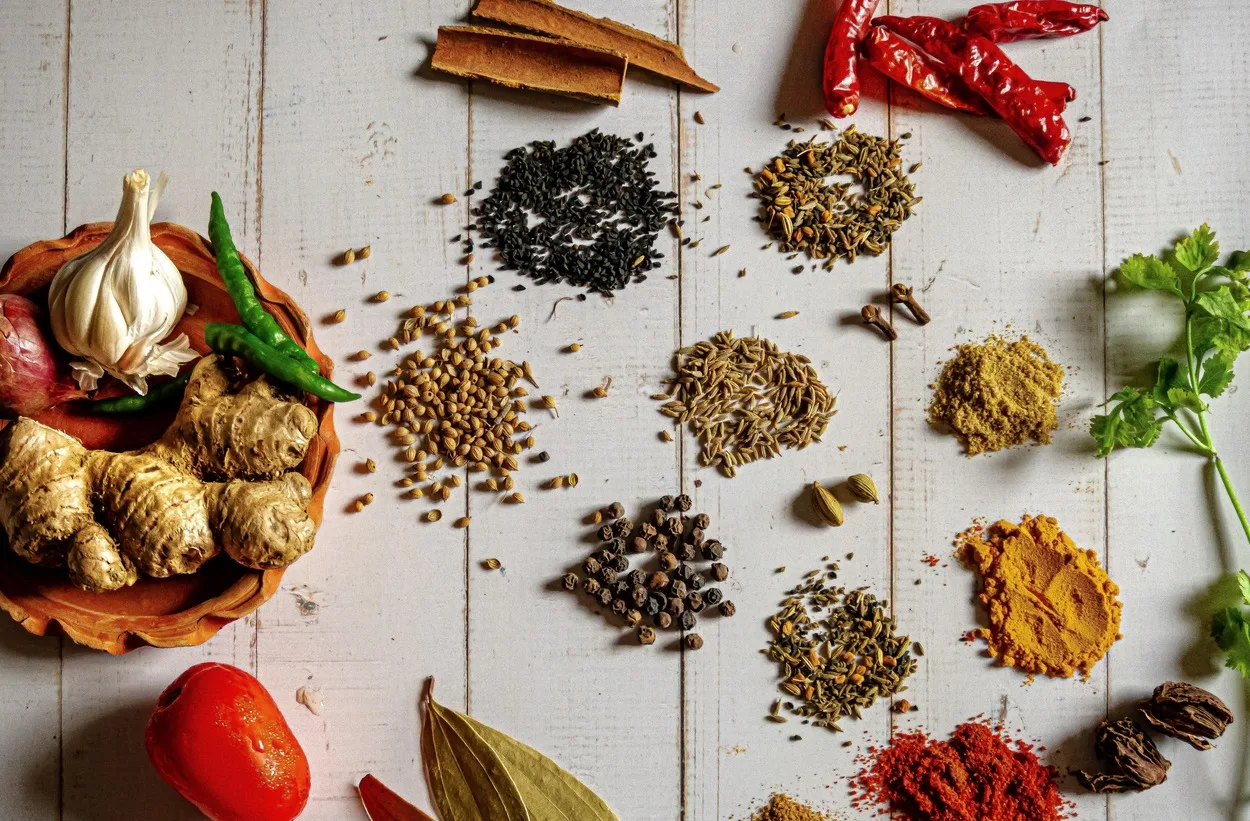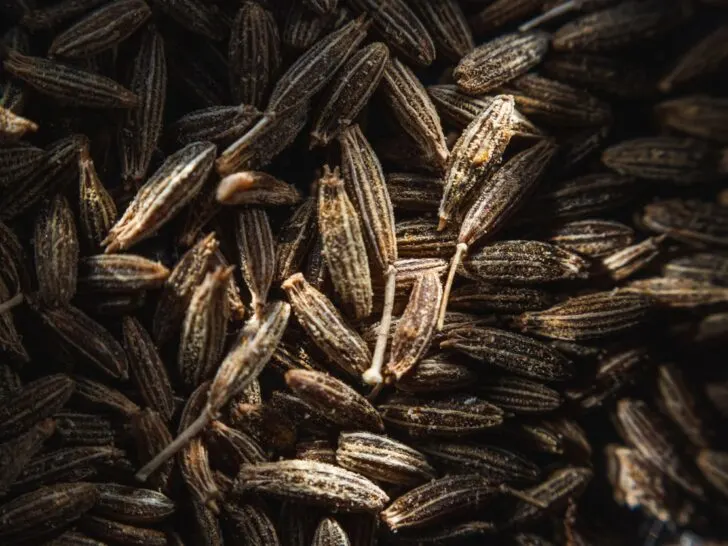Cumin seeds are a type of spice obtained from the cumin flower. They have a mildly bitter flavor. Cumin originates in western Asia and is a common ingredient in Indian cuisine; you can find it in most grocery stores.
There’s no difference between cumin seeds and jeera seeds except that jeera is the Indian name for cumin seeds. The natives of their neighboring country, Pakistan, refer to cumin seeds as Zeera.
The best way to differentiate a Pakistani from an Indian is that you’ll find Indians pronouncing “Z” as “J.”
When it comes to the production of this spice, due to its wide range of climates, India is considered the hub. The country is the largest producer and consumer of spices. In 2018, India and Turkey were the top exporters of cumin seeds.
This article discusses the benefits of cumin seeds and also differentiates them from some other similar seeds. Let’s dive into it.
Essential Indian Spices
South Asia and specifically the Indian subcontinent is famous for its rich variety of spices and herbs. These spices give a rich taste to the food. The same type of food can taste entirely different depending on which blend of herbs and spices mixture has been used.
Among these, cumin seeds hold a prominent place. Others include star anise, cinnamon, fennel seeds, black pepper, clove, and cardamom.
Cumin seeds are commonly found in three forms:
- Cumin seeds
- Black cumin seeds
- Bitter cumin seeds

Cumin Seeds
One of the most common spices in Indian cuisine is cumin seed, also known as jeera, which has several benefits.
The seeds contain a phytochemical called cumin aldehyde, which has anti-inflammatory, anti-bacterial, anti-fungal, and anti-microbial properties.
They have an earthy flavor and are a great addition to a wide variety of dishes. They are also an essential component of curry powder, rasam powder, and garam masala.
These seeds are available in whole and powdered form. They are typically dry-roasted and ground into a fragrant powder.
Black Cumin
Black cumin seed or black seed is commonly called kalonji in the Indian subcontinent.
They are a great way to get the most out of your health. A teaspoonful of black cumin seed oil per day is sufficient to give you a variety of benefits, including reduced cholesterol levels and improved blood glucose control.
The oil can be taken orally as a supplement or taken in capsule form. Taking black seed oil is easy, but you should always consult your healthcare provider before starting a new regimen.
It has been found to reduce blood pressure, inflammation, and plaque formation. It can also help with diabetes-related complications. Several studies show that black cumin seeds can help prevent several kinds of heart disease. Additionally, black cumin seed helps fight bacteria, fungi, viruses, and parasites.
Health Benefits of Black Seed Oil
- Black seed oil is beneficial for acne and psoriasis. Although it is generally considered safe for internal use, taking it in larger amounts can cause adverse reactions.
- Those who are taking blood-lowering medications should consult with a healthcare professional before using black seed oil. As it might result in dropping blood pressure to a very low level.
- Black seed oil contains powerful phytochemicals and antioxidant capabilities. The antioxidants in black seed oil can naturally treat and prevent various diseases, including cancer.
Bitter Cumin
Bitter cumin is also called Shahi Jeera. This type of cumin is similar in shape and size to simple cumin, only it is darker in color.
The bitter cumin has a grayish color. Along with the size and shape, bitter cumin tastes more similar to cumin as it is to black cumin seeds.
Its numerous health benefits include helping with bloating and digestion problems. It is also used to soothe coughs. Bitter cumin is said to increase milk production in lactating mothers. In some cases, it has also been reported to solve heart problems.
Fennel Seeds vs. Cumin Seeds
Fennel seeds and cumin seeds have very similar flavors and textures. Fennel is a lighter herb, while cumin is a bit stronger.
Both have a strong anise flavor and are used to season dishes and seasoning blends. Fennel is often used to lighten up dishes, while cumin is used to give a richer flavor to dishes.
These two types of seeds are used in a variety of recipes, including Indian, Italian, and French. Both seeds have health benefits. They’re also used in a variety of rubs.
Coriander vs. Cumin
While coriander and cumin seeds are both popular spices, they have different tastes. Coriander is sweet and citrusy, while cumin is slightly bitter.
The difference between the two lies in how they are used: coriander is used in many Mediterranean dishes and Mexican cuisine, while cumin is slightly bitter and has a sharper flavor.
Coriander seeds are round and have a pointed edge on one side. They are slightly larger than cumin seeds and are light brown or yellow. Cumin seeds are much smaller and thinner and resemble brown rice grains.

Side Effects of Eating Spicy Food
One of the reasons that Indians prefer spicy food is that it keeps food from spoiling. The hotter climate makes it difficult for bacteria to grow and survive. So, north Indian food tends to be spicy. But, not all Indian food is spicy. You can also find milder dishes in the country.
- Spices can cause some people to experience digestive problems. They can also damage the taste buds. This is why people with low spice tolerance should stick to blander food.
- Spicy food is very hot and should only be consumed in moderation. If you cannot handle it, you can try using coolants like sour cream or milk. Some people also try taking some supplements which can help reduce the heat.
List of Healthy Spices and Herbs

| Spices | Benefits |
| Turmeric | Good for heart health and cancer. It also has pain relief properties. |
| Cardamom | It’s good for digestion. Chewing it also helps with bad mouth smells. |
| Saffron | In addition to improving your mood and depression, it also has antioxidant properties. |
| Black Pepper | Has brain-boosting properties. But make sure to not take more than 1-2 tablespoons a day. |
| Oregano | Adding this to your diet can really help fight bacteria. |
| Basil | Helps with anxiety and depression. |
| Garlic | It’s an immune system booster. |
| Clove | Heart disease and diabetes might not grow when taking cloves. |
| Mint | It really helps improve the immune system. |
Cumin Seeds vs. Jeera
There is no difference between cumin seed and jeera. In India, cumin seeds go by the name “jeera,” while the same thing is known as “zeera” in India’s neighboring country, Pakistan.
Conclusion
- Cumin seeds, called jeera in India, are widely used in Indian cooking.
- In India and Pakistan, cumin seeds are known as jeera and zeera respectively.
- India is the largest producer of cumin seeds and spices due to its diverse climate.
- Cumin seeds have health benefits like reducing blood pressure and aiding digestion.
- Other types of cumin seeds like black cumin and bitter cumin also have health benefits.
- Fennel, coriander, and cumin seeds are commonly used in Indian and other cuisines. Each seed adds unique flavors.
- Spices such as turmeric, cardamom, and garlic offer health benefits like improving heart health and boosting immunity.
- Excessive consumption of spices can cause digestive issues, so moderation is important.

